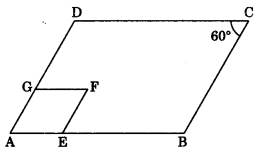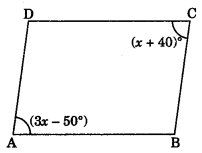Check the below NCERT MCQ Questions for Class 8 English Honeydew Poem 8 On the Grasshopper and Cricket with Answers Pdf free download. MCQ Questions for Class 8 English with Answers were prepared based on the latest exam pattern. We have provided On the Grasshopper and Cricket Class 8 English MCQs Questions with Answers to help students understand the concept very well. https://mcqquestions.guru/on-the-grasshopper-and-cricket-class-8-mcq-questions/
Students can also visit the most accurate and elaborate On the Grasshopper and Cricket Class 8 Questions and Answers. Every question in the textbook has been answered here.
MCQ Questions for Class 8 English Honeydew Poem 8 On the Grasshopper and Cricket with Answers
On The Grasshopper And Cricket MCQ Class 8 Question 1.
Whose warmth is ever increasing?
(a) Grasshopper’s song
(b) Cricket’s song
(c) Birds chirping
(d) Poetry of earth
Answer
Answer: (b) Cricket’s song
Question 2.
Who is the poet of the poem “On the Grasshopper and Cricket”?
(a) John keats
(b) T. S. Eliot
(c) Rabindranath Tagore
(d) Ruskin Bond
Answer
Answer: (a) John keats
Question 3.
Complete the line in Stanza 2 that says, “The poetry of earth is __________”
(a) Never dead
(b) Ceasing never
(c) Dead never
(d) Never ceasing
Answer
Answer: (b) Ceasing never
Question 4.
Who sings the poetry of earth in the summer season?
(a) Grasshopper
(b) Cricket
(c) Crow
(d) Skylark
Answer
Answer: (a) Grasshopper
Question 5.
Where does the grasshopper take rest?
(a) Beneath the weed
(b) Behind the stone
(c) Grassy hills
(d) None of the above
Answer
Answer: (a) Beneath the weed
Question 6.
Where do the birds take shelter?
(a) Cooling trees
(b) Beneath the weed
(c) Behind the stone
(d) Grassy hills
Answer
Answer: (a) Cooling trees
Question 7.
What has the frost wrought?
(a) Poetry of earth
(b) Warmth
(c) Silence
(d) All of the Above
Answer
Answer: (c) Silence
Question 8.
Who sings the poetry of earth in the winter season?
(a) Grasshopper
(b) Cricket
(c) Crow
(d) Skylark
Answer
Answer: (b) Cricket
Question 9.
What makes the birds faint?
(a) Earth’s poetry
(b) Hot sun
(c) Frost
(d) Rain
Answer
Answer: (b) Hot sun
Question 10.
Complete the line in Stanza 1 that says, “The poetry of earth is __________”
(a) Never dead
(b) Ceasing never
(c) Dead never
(d) Never ceasing
Answer
Answer: (a) Never dead
(1)
The poetry of earth is never dead :
When all the birds are faint with the hot sun,
And hide in cooling trees, a voice will run
From hedge to hedge about the new-mown mead,
Question 1.
By ‘the poetry of the earth’, the poet means
(a) a song about the earth
(b) the music of birds etc
(c) the poetry of poets
(d) the pleasures of life.
Answer
Answer: (b) the music of birds etc
Question 2.
The birds hide in trees because of
(a) rain
(b) tiredness
(c) cold
(d) heat.
Answer
Answer: (d) heat.
Question 3.
The ‘voice’ mentioned here is the voice of
(a) a grasshopper
(b) a cricket
(c) a bird
(d) the poet.
Answer
Answer: (a) a grasshopper
Question 4.
The word ‘cooling’ here means
(a) pleasing
(b) amusing
(c) comforting
(d) brightening.
Answer
Answer: (c) comforting
(2)
The poetry of earth is ceasing never:
On a lone winter evening when the frost
Has wrought a silence, from the stone there shrills
The cricket’s song, in warmth increasing ever,
Question 1.
The poetry of earth is
(a) pleasant
(b) unpleasant
(c) constant
(d) loud.
Answer
Answer: (c) constant
Question 2.
The winter evening is ‘lone’ because
(a) the poet has no company
(b) there is silence all around
(c) there is frost
(d) it is cold.
Answer
Answer: (b) there is silence all around
Question 3.
The cricket’s song
(a) pleases everybody
(b) breaks winter’s depression
(c) makes people angry
(d) is disliked by the people.
Answer
Answer: (b) breaks winter’s depression
Question 4.
the word ‘warmth’ in the passage means
(a) loudness
(b) shrillness
(c) heat
(d) cheer.
Answer
Answer: (c) heat
(3)
That is the grasshopper’s — he takes the lead
In summer luxury — he has never done
With his delights, for when tired out with fun
He rests at ease beneath some pleasant weed.
Question 1.
the word ‘that’ refers to
(a) the voice
(b) the insect
(c) the bird
(d) the hedge
Answer
Answer: (a) the voice
Question 2.
The grasshopper is happy in
(a) winter
(b) spring
(c) summer
(d) autumn.
Answer
Answer: (c) summer
Question 3.
The grasshopper ‘has never done’ means
(a) he is never crying
(b) he is never content
(c) he is always singing
(d) he is always on the move.
Answer
Answer: (b) he is never content
Question 4.
The word ‘beneath’ means
(a) below
(b) neat
(c) above
(d) under
Answer
Answer: (d) under
(4)
And seems to one in drowsiness half lost;
The grasshopper’s among some grassy hills.
Question 1.
One is lost in drowsiness because of
(a) the bad weather
(b) the dark night
(c) tiredness
(d) loss of sleep.
Answer
Answer: (a) the bad weather
Question 2.
The lines refer to the song sung by
(a) a grasshopper
(b) a cricket
(c) a bird
(d) a girl.
Answer
Answer: (b) a cricket
Question 3.
The passage is describing a scene of
(a) summer
(b) winter
(c) rains
(d) autumn.
Answer
Answer: (b) winter
Question 4.
‘Drowsiness’ means
(a) tiredness
(b) depression
(c) half asleep
(d) working.
Answer
Answer: (c) half asleep
We hope the given NCERT MCQ Questions for Class 8 English Honeydew Poem 8 On the Grasshopper and Cricket with Answers Pdf free download will help you. If you have any queries regarding CBSE Class 8 English Poem On the Grasshopper and Cricket MCQs Multiple Choice Questions with Answers, drop a comment below and we will get back to you soon.

